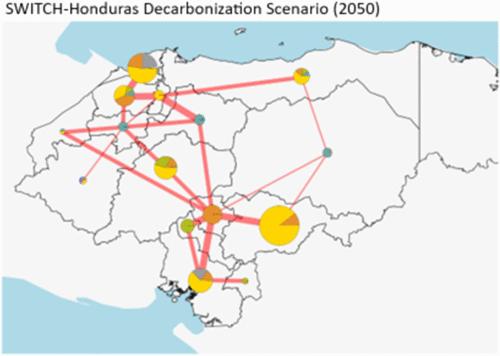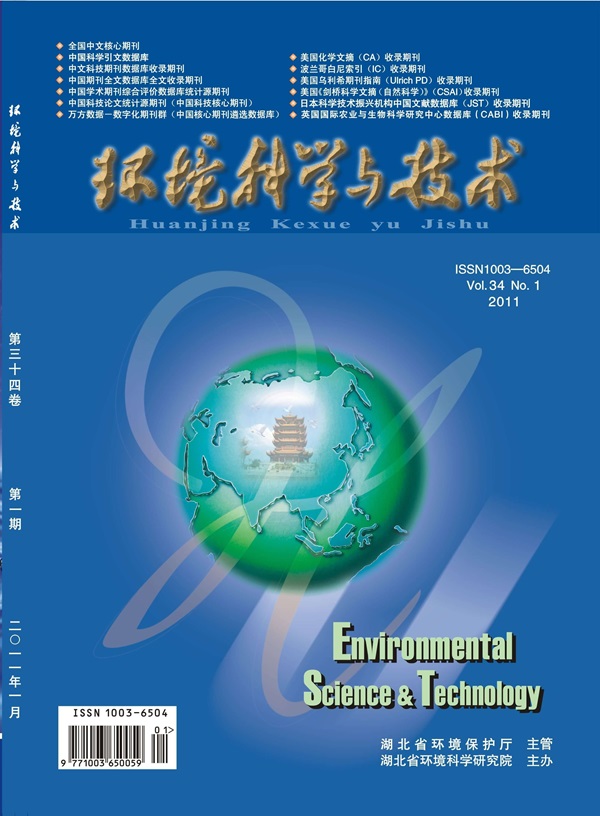洪都拉斯电力部门脱碳之路
IF 11.3
1区 环境科学与生态学
Q1 ENGINEERING, ENVIRONMENTAL
引用次数: 0
摘要
未来几十年,全球温室气体排放的大部分将来自新兴经济体不断提高的生活水平。为了应对这一双重挑战,低排放发展战略对于减少温室气体排放,同时使发展中国家能够共同增强抵御能力至关重要。然而,实现净零排放所需的长期战略与拟议的国家电力规划文件之间存在广泛的政策差距。洪都拉斯历来是最易受气候影响的国家之一,该国承诺到2050年实现脱碳,但预计其国家电力规划战略中所有情景的温室气体排放量都将在当前水平上增加。我们开发了一个容量扩张模型来分析一系列替代途径,以实现低成本的能源转型,确定电力部门经济上可行的减排途径。我们的研究结果表明,不受限制的低成本扩张方案将可再生能源装机容量提高到80%,同时提供比目前国家扩张途径更实惠的电力。深度脱碳方案在不实施碳定价或碳固存技术的情况下,以9.60美元/兆瓦时的低成本溢价调度可再生能源。负担得起的途径使洪都拉斯的能源部门规划与所需的全球中长期脱碳和气候变化战略保持一致。本文章由计算机程序翻译,如有差异,请以英文原文为准。

Pathways to Decarbonize Honduras’ Power Sector
The bulk of global greenhouse gas emissions in the following decades will come from rising living standards in emerging economies. To address this coupled challenge, low-emission development strategies are essential to mitigate greenhouse gas emissions while jointly allowing developing countries to increase resilience. However, there has been a widespread policy gap between the long-term strategies needed to achieve net zero emissions and proposed national electrical planning documents. Honduras, historically one of the most climate-vulnerable countries, committed to decarbonizing by 2050 but expects an increase in greenhouse gas emissions from current levels across all scenarios in its national electricity planning strategy. We develop a capacity expansion model to analyze a range of alternative pathways to enable low-cost energy transitions, identifying economically feasible emission reduction pathways in the electrical sector. Our results show that an unrestricted, low-cost expansion scenario increases installed renewable capacity to 80% while delivering significantly more affordable electricity than current national expansion pathways. A deep decarbonization scenario dispatches renewable energy resources with a small cost premium of 9.60 $/MWh without implementing carbon pricing or carbon sequestration technologies. Affordable pathways align Honduras’ energy sectoral planning with needed global long- and medium-term decarbonization and climate change strategies.
求助全文
通过发布文献求助,成功后即可免费获取论文全文。
去求助
来源期刊

环境科学与技术
环境科学-工程:环境
CiteScore
17.50
自引率
9.60%
发文量
12359
审稿时长
2.8 months
期刊介绍:
Environmental Science & Technology (ES&T) is a co-sponsored academic and technical magazine by the Hubei Provincial Environmental Protection Bureau and the Hubei Provincial Academy of Environmental Sciences.
Environmental Science & Technology (ES&T) holds the status of Chinese core journals, scientific papers source journals of China, Chinese Science Citation Database source journals, and Chinese Academic Journal Comprehensive Evaluation Database source journals. This publication focuses on the academic field of environmental protection, featuring articles related to environmental protection and technical advancements.
 求助内容:
求助内容: 应助结果提醒方式:
应助结果提醒方式:


